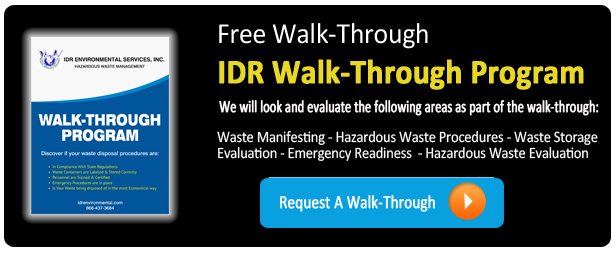For many companies, chemicals play an important role in everyday business operations. Whether they are proprietary substances used in the manufacturing process or solvents that are used for cleaning or degreasing, hazardous materials abound in the workplace.
The most important measure to mitigate the risk of chemical exposure to your employees or the environment is proper storage and handling.
For many hazardous chemicals it is recommended to have them safely stored out of people’s reach in suitable chemical storage cabinets and to have specially trained personnel handling them when needed.
Identify Your Chemicals
Before rushing out and making a purchase, a starting point is to determine the types and variety of chemicals used in your facility. Each chemical used in your operations should have a Material Safety Data Sheet (MSDS).
The MSDS will have information on proper storage requirements for each chemical used in your operations. Among other things they should answer the following questions:
- Is the chemical a flammable?
- Is the chemical a corrosive?
- Does the chemical need to be stored other than at ambient temperature?
- Is the chemical an oxidizer or reducer?
- Is the chemical light sensitive?
- Does the chemical require any special handling procedures?
Typical Storage Considerations
There are a variety of factors to consider once you understand the attributes of the chemicals that you are storing. Typical considerations include:
- Temperature control
- Ignition control
- Proper ventilation
- Chemical segregation
- Chemical identification
Chemical Segregation
Keeping chemicals properly segregated is important for employee safety. Proper segregation ensures that incompatible materials avoid inadvertent contact. Fire, combustion, violent chemical reactions and toxic or noxious gases are all consequences of improper chemical segregation.
Acids should not be stored with bases; oxidizers should not be stored with organic materials or reducing agents. Best practices would include a physical barrier and/or separate storage areas for proper segregation when feasible.
Storage Cabinet Considerations
When selecting cabinets used to segregate chemicals the first consideration should be the compatibility of the chemical with the material used in construction of the cabinet.
The corrosive properties of the chemicals should be considered when looking at metal cabinets. For example, corrosives such as strong acids or caustics (strong bases) will likely corrode most cabinets with metallic construction. Acids such sulfuric acid, nitric acid, chromic acid, acetic acid and hydrofluoric acid and common bases such as ammonium hydroxide, potassium hydroxide (caustic potash) and sodium hydroxide (caustic soda) should never be stored in metal.
A better choice for these substances would be non-metallic or epoxy-painted cabinets. They will provide a better service life with strong corrosives.
For flammables, metal storage cabinets may be the recommended choice. There are cabinets that are available exclusively for flammables that would minimize the damage and risk to your facilities and employees in the event of an accident or spill.
Other Safety Considerations
There are other considerations when selecting chemical storage cabinets including the size of your storage area and the quantity of chemicals on hand.
In addition to chemical compatibility concerns, safe chemical handling requires weekly inspections of chemical storage areas and strong inventory control. Ensure that all chemicals are properly labeled and chemicals are properly stored, including secured caps at all times. Chemicals should never be stored on bench tops, fume hoods on the floor, in traffic aisles. Shelves should never be overcrowded and items should not be above eye level.
If your company is in the process of redesigning your storage areas, or reevaluating your hazardous waste procedures, consider a hazardous waste walk-through.
A hazardous waste walk-through from an experienced and properly licensed hazardous waste company is an evaluation of your hazardous waste procedures. Areas of focus include:
- Waste Manifesting
- Hazardous Waste Procedures
- Waste Storage Evaluation
- Emergency Readiness
- Hazardous Waste Evaluation
- Employee Training Procedures
Experienced technicians who are current on both the federal and state laws can pinpoint areas of concern and provide cost effective and simple solutions to hazardous waste violations. They will be able to evaluate your storage areas and provide common sense and cost effective recommendation on your storage needs.

Comment